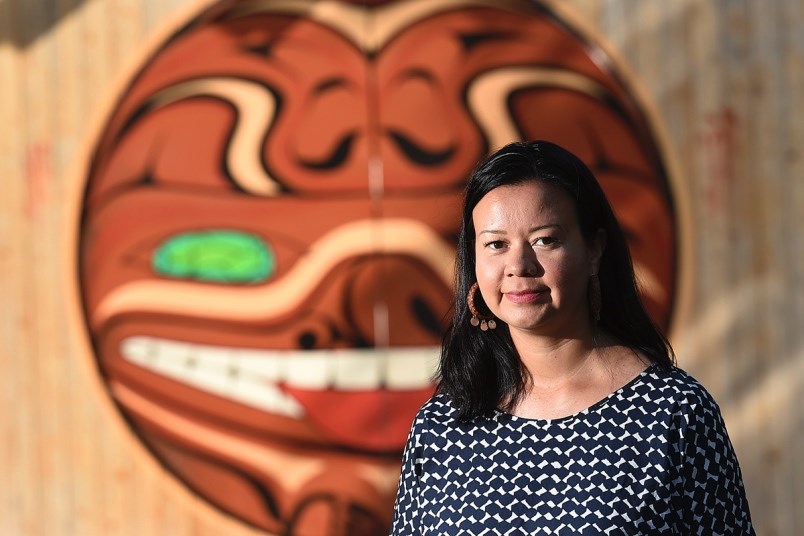The city’s key leader responsible for reconciliation efforts with Indigenous people resigned in March and is now in charge of Squamish Nation hereditary chief Ian Campbell’s campaign to become the next mayor of Vancouver.
Ginger Gosnell-Myers, who was promoted in April 2016 as the city’s first-ever manager of Aboriginal relations, said she left the city to focus on completing her master’s degree in public policy at Simon Fraser University and to run Campbell’s campaign.
“It’s a lot of work to do these two things at the same time,” she said, emphasizing her resignation was not because of any pushback from senior staff, but acknowledged she was breaking new ground. “It’s difficult to be a trailblazer and to be the first one, and to have people recognize your capabilities and to always come to you for advice and direction.”
Of Nisga’a and Kwakwaka’wakw heritage, Gosnell-Myers had worked with the city in 2013 to help organize the Truth and Reconciliation Commission of Canada event in Vancouver and the Walk for Reconciliation. She stayed on as an Aboriginal planner before being promoted to manager, working out of city manager Sadhu Johnston’s office.
“In the five years that I worked in the city manager’s office—with all staff across all departments—I feel like we created a force, and we created a collective body of knowledge,” said Gosnell-Myers, who was the city’s go-to person on all things Indigenous, including liaising with city departments, writing reports, developing policy and working her many connections with Indigenous groups.
She and her staff identified 27 of 94 recommendations set out in the Truth and Reconciliation Commission of Canada’s final report as “actionable” by the city—everything from child welfare, education, language and culture to health, justice, sports and business.
Gosnell-Myers was the point person who organized the acclaimed 150-plus celebrations and has been behind successful Indigenous Day festivals. She has also influenced the addition of city-commissioned Indigenous art and the goal to name more streets and places to honour Indigenous history.
“Ginger added a great deal of value to our organization and supported our journey to becoming a city of reconciliation,” said Johnston in an email to the Courier, noting the city will hire someone to fill the vacancy. “We are very appreciative to her for her leadership.”
Gosnell-Myers said the position of Aboriginal relations manager is important for continuing to bettering relationships with Indigenous people, but noted she feels confident that city staff “are ready to walk on their own.” The longer she stayed, she added, the longer it would take for other staff to lead reconciliation efforts.
“They’re all leaders and they can do this, and now they have to,” she said. “But leaving was difficult. It was one of the most difficult decisions I ever made because I loved working for the City of Vancouver, and I loved my colleagues and we achieved so much together.”
Vision Coun. Andrea Reimer said Gosnell-Myers’ departure is “a big loss, but I think it’s in pursuit of a big gain for all Indigenous people.” Reimer was referring to Gosnell-Myers’ role as Campbell’s campaign manager.
Campbell launched his campaign Monday at an events centre under the Granville Bridge.
Reimer, who is not seeking re-election, is co-chairperson of Campbell’s campaign. Over the years, Indigenous candidates have sought public office—some successfully such as Vision school trustee Ken Clement—and others who have failed to win a nomination, or get elected.
Not many Indigenous people have run for mayor in Vancouver.
Angie Dennis ran for mayor with COPE in 1972. She won 6,000 votes to the 64,000 won by winner Art Phillips of TEAM. Gosnell-Myers and Reimer are hoping Campbell will first win Vision Vancouver’s nomination and then win the election, making history.
“This is exciting—the making of a mayor,” Gosnell-Myers said following Campbell’s launch.
Twitter/@Howellings



